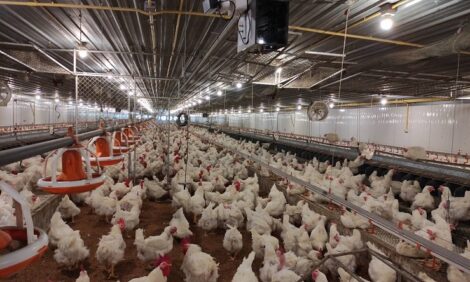



Crucial Role For Farming In Improving Water Quality
UK - DEFRA hve release a new set of gudelines to help farmers improve water quality by making changes to their farming practices.'Diffuse' pollution gets into water from a number of different sources and, though each contribution is minimal, collectively there is a negative effect on water quality and the water environment.
Recent studies have shown that agricultural activities contribute on average 60% of diffuse nitrate, 25 per cent of diffuse phosphorus, up to 75 per cent of sediment, and between 25 per cent and 50 per cent of bacterial pollution entering river systems.
Improved water quality has wide reaching benefits. It helps ensure safe bathing water, healthy fisheries, thriving biodiversity, and an improved living environment. Good water quality also encourages recreation and tourism, which benefits rural businesses.
The existing Codes of Good Agricultural Practice have already raised awareness and encouraged positive change in agricultural practice. The revised code takes account of improved knowledge and understanding, and is intended to be more usable by showing how water, soil and air pollution problems are related.
However there are some parts of the country where specific additional action is needed, and the other two consultations address these areas.
The Nitrates Consultation sets out reinforced and additional measures under the Nitrates Action Programme. A review of NVZs has shown that nitrate pollution has increased in some areas and it is proposed to increase coverage from 55 per cent to 70 per cent of England.
The key changes proposed to the Action Programme include:
- Limiting livestock manure loadings for all land to 170kg per hectare of total nitrogen in any calendar year averaged over the farm area.
- Extending the length of the closed spreading periods for organic manures with high available N, and applying it to all soil types.
- Increasing the manure storage capacity requirement to 26 weeks for pigs and poultry, and 22 weeks for cattle.
- Requiring farms to limit applications of nitrogen to crop requirement and assume a level of efficiency of nitrogen supply from any manure applications.
- Requiring farmers to undertake a risk assessment and prohibiting the application of nitrogen fertiliser to areas identified as posing a high risk of causing water pollution.
- Prohibiting the use of high trajectory, high pressure application techniques for spreading organic manure, and requiring incorporation of organic manure applied to bare soil or stubble in certain situations.
- Requiring farmers to establish cover crops before spring sown crops.
- Water protection zones (regulation only)
- Water protection zones plus advice (regulation and support)
- Water protection zones plus advice and options in the Entry Level and Higher
The deadline for consultation responses is 13 November 2007.








